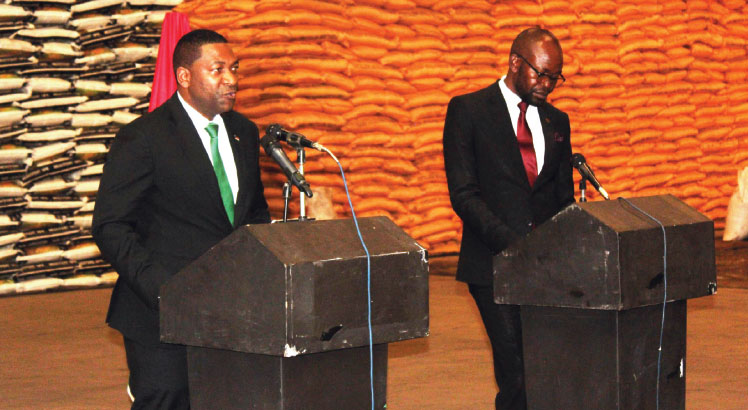Industry players have expressed excitement with government’s move to monitor fertiliser markets nationwide, a move they say would help promote productivity.
Last week, Malawi Bureau of Standards (MBS) disclosed that it is conducting fertiliser surveillance on the market following rising complaints of sale and packaging of defective fertiliser contrary to MBS’s compliance with the mandatory labeling (marking) requirements as stipulated in the applicable Mandatory Malawi Standards.
In a written response, Farmers Union of Malawi (FUM) chief executive officer Jacob Nyirongo said the surveillance exercise will protect them from buying fake and adulterated fertilisers.
He said: “However, for a sustainable policing mechanism, FUM calls for operationalisation of the Fertiliser Act which makes provisions for the establishment of Malawi Fertiliser Regulatory Authority that will be responsible for regulating and also licensing fertilizer operators to ensure access to high quality fertilisers by farmers.”
On his part, Malawi Agriculture Policy Advancement Agenda (Mwapata) executive director William Chadza said while the move will ensure that the market has supplies of fertilisers with right specifications, the main challenge will be accessing area specific fertilisers.
Minister of Agriculture Sam Kawale (L) and Minister of Information Moses Kunkuyu update Malawians on this year’s AIP in Lilongwe early this week
He said: “Right fertiliser, right amount and right time are key for farmers to get the best out of the inorganic fertilisers.
“But such surveillance ought to be sustained to deter would-be offenders.”
MBS director of metrology services Thom Senganimalunje said selling underweight fertiliser and adulteration of fertilisers with the aim to cheat unsuspecting customers is a punishable offence apart from being unethical
With the aid of police, MBS has since confiscated a consignment of fake and defective fertilisers which were mixed with non-fertiliser materials in Mzuzu, fake NPK 23:10:5+6S+1Zn fertiliser packed in Falcon branded bags abusing the marks of ETG Inputs as well as fake NPK fertiliser mixed with non-fertiliser materials.
Data shows that Malawi’s annual fertiliser demand is between 450 000 and 500 000MT, with some informally exported to Zambia, Mozambique and Zimbabwe.
In 2022, for instance, about 7 000MT was officially exported, the centre’s data shows.
A Business News snap survey shows that in some agro dealer shops across the country, on average, NPK is fetching K62 6000, Urea is fetching K66 300 while D Compound is fetching K74 000 per 50 kilogramme bag of fertiliser.
The post Fertiliser inspection excites industry appeared first on The Nation Online.
 Moni Malawi
Moni Malawi 

